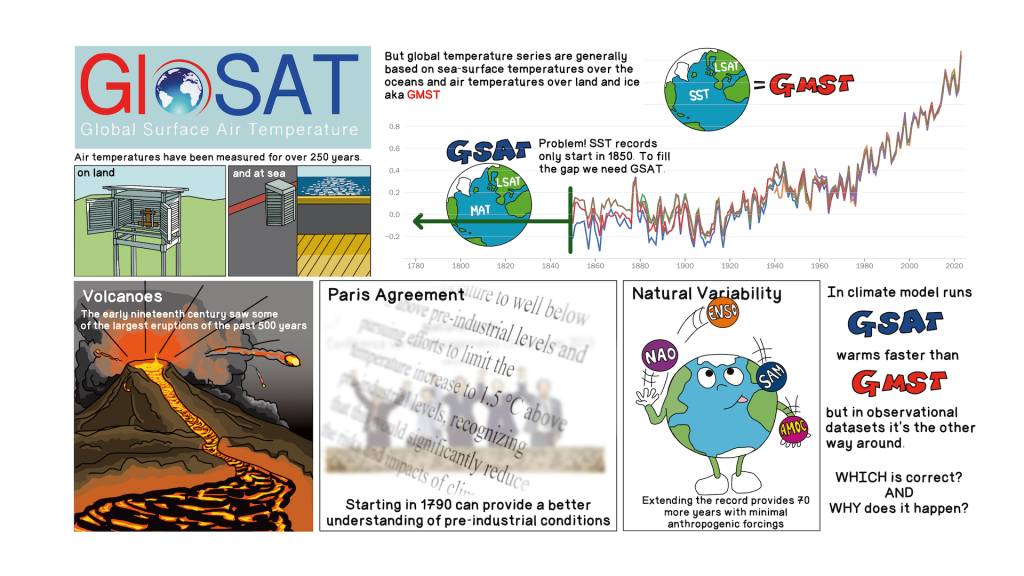GloSAT - estimating how the global climate has changed over the industrial era
About GloSAT
The GloSAT acronym stands for Global Surface Air Temperature.
Global surface temperature is an important measure of climate change, used to chart our changing climate in the Paris Climate Agreement and evaluate the performance of climate models. There are several different data products based on temperature measurements over land and by ships that are used in climate assessments such as the Intergovernmental Panel on Climate Change (IPCC) assessments reports, most recently in the 6th assessment published in 2021. These data products start in 1850, limited by the availability of sea surface temperature (SST) measurements which are combined with measurements of air temperature over land to provide estimates for the globe. However measurements of marine air temperature were made before SST started to be routinely measured, and we have records going back to the 1790s. The GloSAT project was funded by the UK Natural Environment Research Council to develop a new, extended, global surface temperature record based on marine air temperature combined with land air temperature and to use that record to understand climate variability in a longer context than current datasets allow.

Kennedy, John; Becker, Amani; Cowtan, Kathryn D; Hawkins, Ed; Hegerl, Gabi; Middleton, Stuart E.; et al. (2025). Illustration introducing the GloSAT Global Surface Air Temperature project. figshare. Figure. doi: 10.6084/m9.figshare.28001222
GloSAT Achievements
The main aim of GloSAT was to produce an extended record of near surface air temperature and to analyse this record using extended runs of the UK earth system model UKESM. There were many steps to achieving this goal:
- Digitising new marine data sources
- Research to develop new methods to automatically extract data from logbook images
- Updates to the Climatic Research Unit (CRU) station data base
- Bias adjustments to account for changing measurement methods for land and ocean data
- A new approach to allow the use of land stations with short records
- An ensemble of model runs for UKESM starting in 1750
- New gridded datasets for air temperature over land and over the ocean
- A gridded dataset combining air temperature over land and ocean, starting in 1781
- Research into climate variability, including heatwaves and the effect of volcanos
Discover more about the research »
GloSAT partners
The GloSAT was a collaboration between the National Oceanography Centre, the Met Office and the National Centre for Atmospheric Science along with the Universities of East Anglia, Edinburgh, Reading, Southampton and York. Funding for the project was via a Large Grant from the UK's Natural Environment Research Council. UKRI/NERC GloSAT Large Grant (Linked awards: NE/S015647/2; NE/S015698/1; NE/S015604/1; NE/S015582/1; NE/S015574/1; NE/S015566/1)







